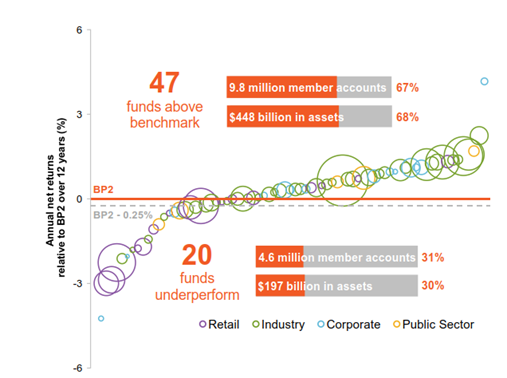By guest contributor Jake Jodlowski, Atchison Consultants
A draft report from the Productivity Commission (PC) with the title “Assessing Efficiency and Competitiveness” has highlighted the need for efficiency and competitiveness within the superannuation industry. Of major interest to the Federal Government is the process used to allocate members’ contributions to superannuation funds when a choice has not been explicitly made.
Not only is there $2 trillion worth of assets within the superannuation sector, superannuation contributions are compulsory. With these two factors in mind, the Federal Government says it hopes the PC can find ways to improve outcomes for all members by increasing the efficiency and competitiveness of the overall superannuation system.
One aspect to come out of the PC’s initial enquiries is the effect of member choice on eventual retirement balances. Of 14.6 million accounts in the dataset used by the PC, about two-thirds are in funds which performed above their benchmark. Almost all of the remaining accounts, or nearly five million, are in funds which fell short of their fund-specific benchmark portfolio.
 Source: Superannuation: Assessing Efficiency and Competitiveness (April 2018 draft report)
Source: Superannuation: Assessing Efficiency and Competitiveness (April 2018 draft report)
Falling short was defined as underperforming by at least 0.25% over the relevant time period. While this amount may not appear to be significant, a difference of this magnitude would reduce a member’s retirement balance by around 6%.

